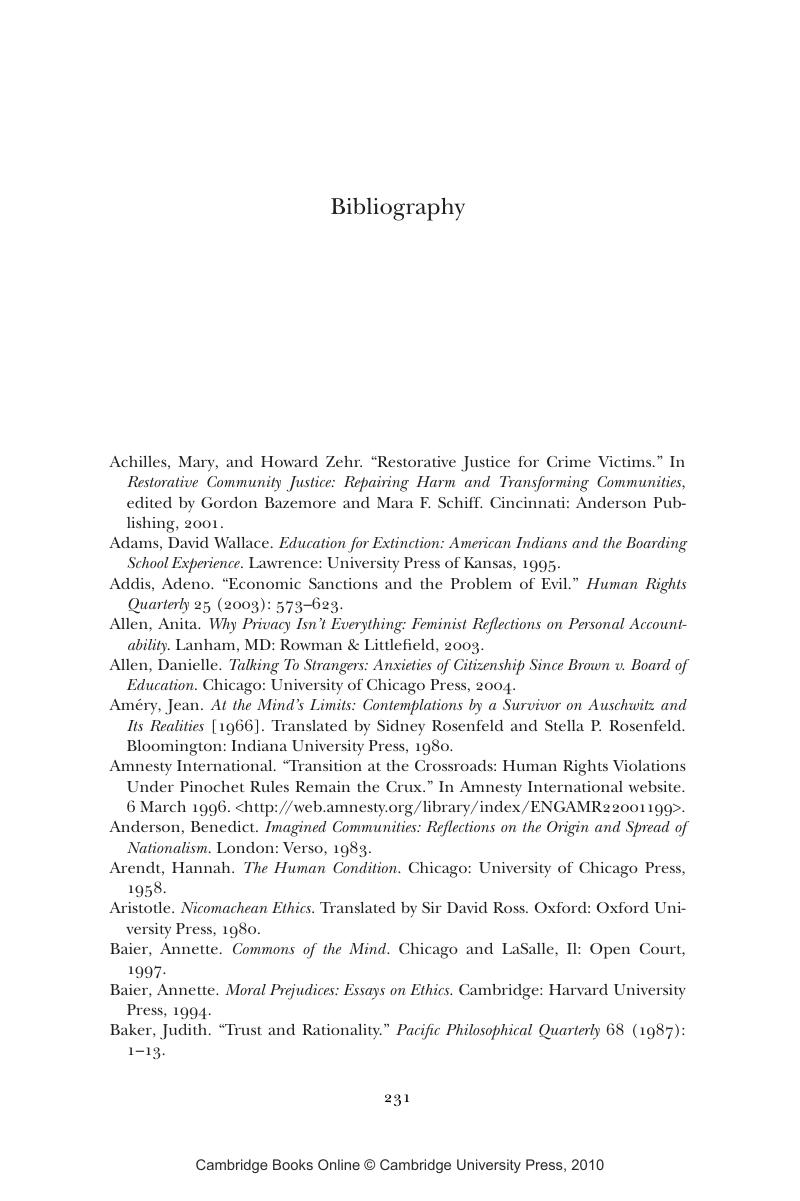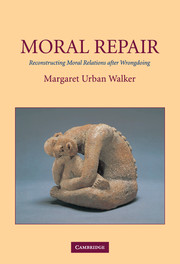Bibliography
Published online by Cambridge University Press: 05 June 2012
Summary

- Type
- Chapter
- Information
- Moral RepairReconstructing Moral Relations after Wrongdoing, pp. 231 - 244Publisher: Cambridge University PressPrint publication year: 2006



